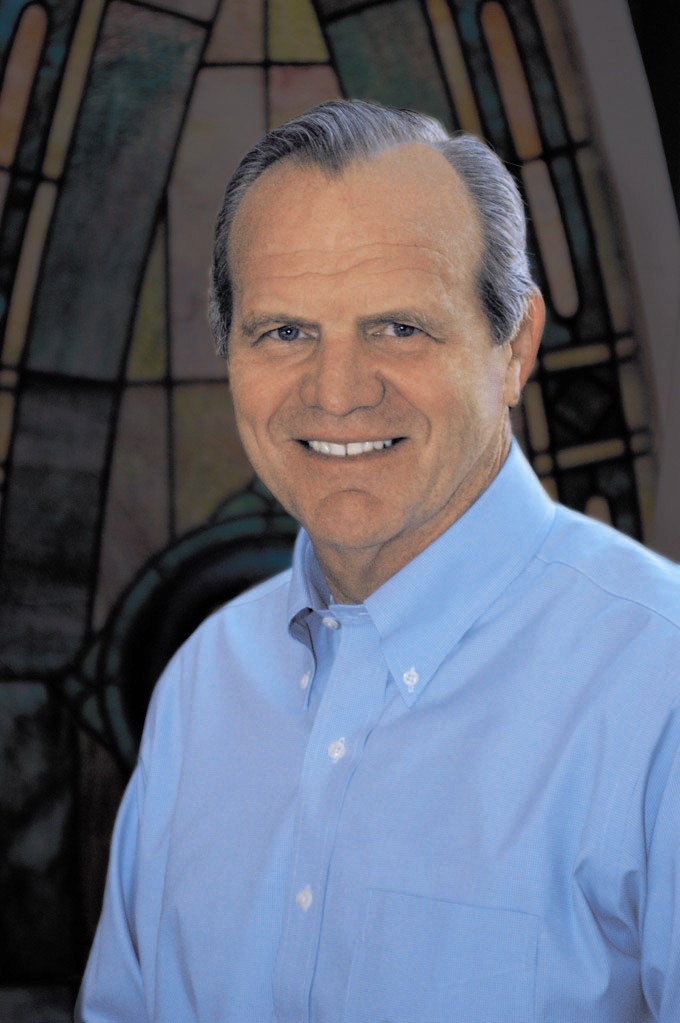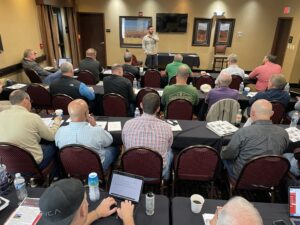
NASHVILLE, Tenn. (BP)–My heart was broken as I read the April 17 report about the decline of baptisms in the Southern Baptist Convention. Many of the other statistics we track looked healthy, which caused me to wonder about the issue of priorities.
Since the number of church plants are up, does this mean that we are planting churches without evangelism in their DNA? Are we increasing in size and decreasing in concern? Do we care that our lost friends and neighbors will die and go to hell? Does it embarrass us to talk about hell?
But this report challenged me at a more fundamental level. Am I looking daily for evangelistic opportunities? Do I seize these divine appointments? I am afraid that I must confess that I am often very lax when it comes to sharing the greatest news that has ever been told. Why? What am I lacking and what are we lacking?
I think Roy Fish in his comments certainly went to the core of our problem as he talked about the need for spiritual awakening. We need revival and a sweeping move of the Holy Spirit in our own lives and in our churches. I doubt anyone would disagree with such a premise. It would appear un-spiritual to do so. In truth I have increasingly heard a heart cry for revival from many of our convention leaders. I truly believe that this is what Dr. Morris Chapman and the convention had in mind as it launched the initiative called Empowering Kingdom Growth. I have continually argued that this cannot be another program it must become a passion. It must be borne in prayer and fueled by revival.
So we agree upon the need. What now must we do? I have heard many pleas for revival based upon the familiar verse in 2 Chronicles 7:14. We often quote only a portion of this verse calling our people to pray and then we organize a prayer meeting for revival. Yet there is a fundamental part of the verse which we seem to conveniently ignore — “and turn from their evil ways.” An essential element of our heart cry for revival must be the heart of repentance. I hear very little preaching on repentance in our day. Are we afraid that we might offend the Boomer, Buster or Tweener with such bold preaching? Are we so concerned with church growth statistics that we are afraid that such a message might frighten “seekers” from our services?
We might address yet another question — repent for what? I know that might seem obvious and each of us might make our own mental list. Perhaps we should! Actually it wouldn’t be a bad place to begin. We could think of our apathy toward spiritual matters, our apathy about the lost, our lack of unity, our lack of passion, our areas of personal compromise, and the list could continue.
Recently, as I was doing the research for my book, “Making Change,” I was stunned by a simple but non-negotiable request from God. It was a text with which I was familiar, but I had never really connected it to our present languid spiritual condition. Let’s just read it together: “‘Since the days of your fathers, you have turned from My statues; you have not kept them. Return to Me, and I will return to you,’ says the LORD of Hosts.” You may have already guessed that the context is the last book of the Old Testament and found in Malachi 3:7.
Read this book again and notice that it is sprinkled throughout with questions that God’s people hurl at the throne of the Sovereign God. The tone is set in verse two as God declares, “I have loved you.” Israel responds, “How have You loved us?” Can you believe the brazen audacity of such a response from the creature to the Creator? Of course we can believe it because we have been guilty of similar heart responses even when we dared not verbalize them.
God’s offer to Israel to return to Him was more than gracious when you read about the spiritual conditions of Israel that are detailed in this final book of the Old Testament. Nonetheless, Israel arrogantly responds, “How can we return?” Their feigned innocence is appalling in the light of God’s gracious offer. God’s response is clear and to the point. “‘Will a man rob God? Yet you are robbing Me!’ You ask: ‘How do we rob You?’ ‘By not making the payments of 10 percent and the contributions.'”
Let’s put this into modern-day perspective. According to recent findings, “Among adults who attend church regularly (an average of at least once a month), more than one out of every three (37 percent) did not give any money to a church in the past year!” “Overall, only 3 to 5 percent of the people who donate money to a church ‘tithe’ their income — that is, give 10 percent or more of their money to religious organizations.” (George Barna, “How to Increase Giving in Your Church”).
When you put these two statements together we can see the enormity of our current-day problem. Sixty-three percent of people give to our church and only 3 to 5 percent of those who give, actually tithe. That would mean that the church with 100 people attending would have between 2 and 3 tithers.
As I was studying this book and thinking about our current-day situation, it dawned on me that this was the last word to Israel for 400 years. The silence was broken by John the Baptist, who called once again for repentance in preparation for the coming King.
Are we willing to meet God’s stated condition for revival? Can you imagine what might occur if we did? This is a call for repentance that is accompanied by a promise, “‘Test Me in this way,’ says the LORD of Hosts. ‘See if I will not open the floodgates of heaven and pour out a blessing for you without measure'” (Malachi 3:10).
Not only will the floodgates be opened, but the devourer will be rebuked. Could the opening of the floodgates lead to an evangelistic harvest of unbelievable proportions?
–30–
Kenneth S. Hemphill is the national strategist for the Southern Baptist Convention’s Empowering Kingdom Growth emphasis, on the Internet at www.empoweringkingdomgrowth.net.
















